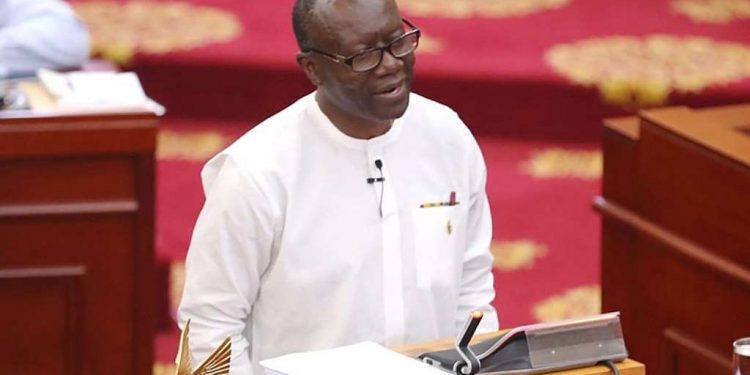Transfer of funds between bank accounts, MoMo accounts not to be affected by E-Levy
Information reaching norvanreports indicate that the transfer of funds between accounts belonging to an individual will not be affected by the 1.75 percent E-levy.
This implies that the E-levy charge is not applicable to a transfer of funds between two mobile money accounts or bank accounts owned by the same person.
Similarly, transactions involving bank transfers and cheques are exempted from the 1.75 percent E-levy charge.
“Bank transfers and cheques – bank transfers and cheques will be exempt from the E-levy; Daily Free Limit – every taxpayer will be able to send up to GHS100 / day in exempt transfers that they can do; Transfers between accounts your own accounts – if you are moving money between your own accounts (i.e., of the same taxpayer) then you will not be charged the E-LEVY,” explains a document on the implementation of the E-levy and in possession of norvanreports.
With regards to the transactions to be affected by the E-Levy during its implementation, they include; Mobile Money Merchant Payments: when you pay for a service or a product from a merchant using your mobile money account; Mobile Money Transfers: sending money from your wallet to another person using mobile money; Merchant Payments Using POS or QR: transactions at merchant locations that are done using a POS, QR or alternative payment channel will be assessed the levy; and E-Commerce/Online Payments: the E-LEVY will be charged to the customer for payments for goods and or services.
This the Finance Ministry hopes will help bring clarity to which transactions are to be affected in the new e-levy and should bring to an end the debate and also get the public to support the new tax, norvanreports understands.
The Minister for Finance, Ken Ofori-Atta, in presenting the budget n Wednesday, announced the introduction of a new levy called the Electronic Transaction Levy or E-Levy.
The Minister noted the new levy is occasioned by the surge in digital transactions as a result of the Covid-19 pandemic and the need to widen the tax net and rope in the informal sector.
According to the Minister, data from the Bank of Ghana indicate that between February 2020 and February 2021 alone, Ghana saw an increase of over 120% in the value of digital transactions compared to 44% for the period February 2019 – February 2020.
Total value of digital transactions for 2020, the Minister further noted, is estimated to be over GHS 500 billion Cedis compared to GH¢78 billion Cedis in 2016.
The E-levy, the Minister noted, will cover mobile money payments, bank transfers, merchant payments and inward remittances at an applicable charge rate of 1.75%.
The E-levy is a new tax measure that will be applied on the only on the originator of a transaction on an electronic platform. Electronic platforms include the following; fintech platforms, online banking and momo platforms.
The Ghana Revenue Authority will be the statutory body to collect the E-Levy in collaboration with the Telcos, Fintechs and Financial Institutions.
Revenue raised from the E-Levy will be used to support government initiatives such as youth employment and entrepreneurship, roads and digital infrastructure and security.
Meanwhile, some experts have expressed reservations about the introduction of the E-Levy. They are of the view that the new levy will promote informality and the cash economy as well as derail digitisation.
According to Dr Aex Ampaabeng, “Most banks/ mobile money transfers are just “money transportation.” Moving money from one person to another with no value creation/device payment involved. Most are transfers to port family members. Taxing such payments can’t be justified.
“I can see more informal businesses accepting cash only, buyers won’t pay additional charges so they will carry cash to shops/markets. Sellers won’t be happy paying taxes on withdrawal. They will also opt for cash, who loses here? Government, for sure.
“This policy will rather enhance informality and it’s a complete opposite of the digitisation agenda. It will be promoting cash and not a cashless economy. It will move traffic from MoMo to cash and could bring job losses. Tax evasion in the informal sector is likely to soar.”










